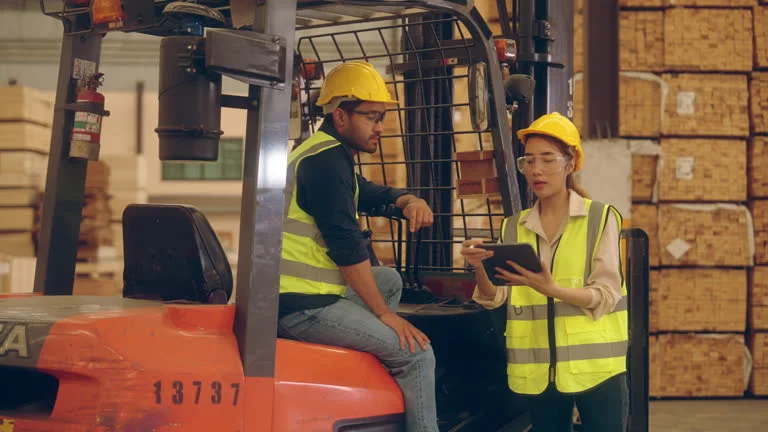In today’s fast-paced industrial and logistics world, the need for efficient material handling solutions has never been greater. From warehouses and manufacturing plants to construction sites and distribution centers, forklifts are indispensable tools that help businesses move heavy loads safely and efficiently. However, owning a fleet of forklifts isn’t always practical or cost-effective especially for businesses with fluctuating workloads or short-term projects. That’s where forklift rentals come in.
Renting a forklift provides companies with the flexibility to access the right equipment when needed without the long-term financial commitment of ownership. Whether for a single day, a few weeks, or an extended period, forklift rental services offer a reliable, budget-friendly way to boost productivity and keep operations running smoothly. This guide explores everything you need to know about forklift rentals, from the types of forklifts available to the key advantages of partnering with trusted providers like tri-lift industries.
Discover insights that matter—check out our related posts and stay ahead!
Understanding the Role of Forklifts in Modern Operations
Forklifts are designed to lift, transport, and stack heavy materials with precision and safety. They come in various sizes and configurations to suit different environments, from compact indoor models for tight warehouse aisles to heavy-duty outdoor units capable of handling large loads on uneven terrain. Their versatility makes them essential for virtually any operation involving material movement.
In manufacturing and logistics, forklifts are used to transport raw materials, finished goods, and pallets across facilities. On construction sites, they assist in moving heavy equipment and supplies. Even retail distribution centers rely on forklifts to maintain fast inventory turnover and timely shipments.
Because the demands of each job can vary significantly, many companies turn to forklift rentals to match their equipment needs with the scale and duration of each project.
Why Renting a Forklift Makes Sense
Renting a forklift offers several key benefits that make it a smart decision for businesses of all sizes. Here are the main reasons why companies are increasingly opting for rentals instead of purchases:
- Cost Efficiency
Purchasing a forklift requires a substantial upfront investment. In contrast, renting allows businesses to access high-quality equipment without tying up capital. This makes forklift rentals particularly appealing for small and medium-sized businesses or seasonal operations. - Flexibility
Equipment requirements can change depending on workload, project type, or season. Rentals give companies the flexibility to adjust quickly without the burden of long-term commitments. - No Maintenance Costs
Maintenance, repairs, and inspections can be costly for equipment owners. Rental companies typically handle these responsibilities, ensuring that the forklifts remain in top condition throughout the rental period. - Access to Modern Technology
The material handling industry is constantly evolving, and new forklift models often come with advanced safety, comfort, and efficiency features. Renting allows businesses to benefit from the latest technology without the need to purchase new machines. - Reduced Downtime
Reliable rental providers maintain their fleets meticulously. In the rare event of a breakdown, a replacement unit is usually provided quickly, minimizing operational interruptions. - Scalability for Growth
As a company grows, its material handling needs change. Rentals make it easy to scale up operations without heavy financial strain.
These benefits make forklift rentals an ideal solution for both short-term projects and long-term operational strategies.
Types of Forklifts Available for Rent
Understanding the different types of forklifts available can help businesses select the right one for their specific needs. Here are the most common categories:
- Electric Forklifts
Perfect for indoor use, electric forklifts are powered by rechargeable batteries, offering quiet operation and zero emissions. They are popular in warehouses and distribution centers where clean energy and reduced noise levels are priorities. - Internal Combustion (IC) Forklifts
Powered by diesel, propane, or gasoline, IC forklifts are best suited for outdoor or heavy-duty applications. They offer strong performance and can handle large loads, making them ideal for construction sites and manufacturing yards. - Reach Trucks
Designed for warehouse operations with tall racking systems, reach trucks have an extended mast that allows operators to lift pallets to high shelves while maintaining stability in narrow aisles. - Order Pickers
These are specialized forklifts designed to allow operators to pick items directly from shelves. They are commonly used in fulfillment centers and retail distribution warehouses. - Pallet Jacks and Stackers
Ideal for light-duty material handling, pallet jacks and electric stackers are great for short-distance transport and smaller spaces where larger forklifts are impractical. - Rough Terrain Forklifts
Equipped with larger tires and enhanced suspension systems, these forklifts are built to operate on uneven or rugged surfaces, making them perfect for outdoor construction or agricultural sites.
By assessing project requirements such as load capacity, lift height, and operating environment, businesses can easily determine which type of forklift will deliver the best results through a rental arrangement.
Key Factors to Consider When Renting a Forklift
To ensure maximum efficiency and safety, businesses should evaluate several key factors before renting a forklift:
- Load Capacity: Understand the maximum weight the forklift must handle. Overloading can damage the machine and compromise safety.
- Lift Height: Determine how high materials need to be lifted and stored to select the appropriate mast size.
- Work Environment: Indoor operations may require electric forklifts with non-marking tires, while outdoor projects benefit from diesel or rough-terrain models.
- Rental Duration: Consider how long the equipment will be needed, rental rates often decrease with longer-term agreements.
- Operator Training: Ensure that all forklift operators are properly trained and certified to use the rented equipment safely.
- Insurance and Safety: Verify that proper insurance and safety guidelines are followed to protect both workers and equipment.
By carefully reviewing these aspects, businesses can avoid common pitfalls and ensure a smooth rental experience.
The Importance of Choosing a Reliable Rental Partner
The success of a rental experience often depends on the quality of the rental provider. Partnering with a trusted, reputable company ensures reliable equipment, fair pricing, and professional support throughout the rental term. Industry leaders like tri-lift industries are known for offering well-maintained equipment, flexible rental options, and exceptional customer service.
A dependable partner will:
- Conduct thorough equipment inspections before each rental
- Offer delivery and pickup services to simplify logistics
- Provide on-site training or safety resources when needed
- Maintain transparent pricing with no hidden fees
- Offer rapid support or replacements in case of technical issues
Choosing the right rental partner is not just about obtaining machinery, it’s about gaining access to expertise, convenience, and peace of mind.
Safety Best Practices for Forklift Operation
Forklift operation carries inherent risks, which is why safety must always remain a top priority. Even the most advanced forklifts require careful handling and adherence to safety standards. Some essential safety practices include:
- Pre-Operation Inspections:
Always check the forklift for leaks, tire conditions, and operational functionality before use. - Proper Load Handling:
Keep loads balanced and within the rated capacity. Avoid carrying unstable or overhanging loads. - Clear Visibility:
Ensure the operator has an unobstructed view. When visibility is limited, use a spotter to guide movements. - Speed Control:
Operate the forklift at safe speeds, especially around corners or in pedestrian areas. - Use of Seat Belts and Safety Gear:
Operators should always wear seat belts, helmets, and safety vests. - Environmental Awareness:
Be aware of obstacles, floor conditions, and overhead obstructions at all times.
Rental providers like tri-lift industries often offer guidance and resources to ensure safe and compliant operation, helping companies maintain a strong safety culture while using rented equipment.
Advantages of Forklift Rentals in Different Industries
Forklift rentals benefit a wide variety of industries. For example:
- Warehousing and Logistics: Rentals help manage peak seasons and high inventory turnover without long-term equipment investment.
- Construction: Temporary projects often require heavy lifting for limited durations rentals provide an economical solution.
- Manufacturing: When new production lines open or output increases, short-term rentals can support additional workloads.
- Retail and Distribution: During busy shopping seasons, companies can rent extra forklifts to handle increased demand efficiently.
- Events and Exhibitions: Forklifts can be rented for setting up stages, booths, and heavy installations during events.
These examples highlight how rental flexibility supports operational agility across diverse sectors.
The Future of Forklift Rentals: Sustainability and Technology
The equipment rental industry is evolving rapidly, and forklift technology is advancing alongside it. Modern electric forklifts, powered by lithium-ion batteries, are becoming the preferred choice for eco-conscious operations due to their zero emissions and low maintenance needs.
Additionally, digital telematics and fleet management systems now allow rental companies to track machine usage, maintenance schedules, and performance in real time. This ensures optimal equipment health and helps customers maximize efficiency.
Forward-thinking companies such as tri-lift industries continue to lead the way by offering advanced, energy-efficient forklifts and sustainable rental programs designed to meet the changing needs of modern businesses.
Conclusion: Lifting Your Operations to the Next Level
Forklift rentals are the backbone of efficient material handling, and their importance cannot be overstated in industries that depend on speed, precision, and safety. However, owning heavy equipment is not always the most practical choice especially when flexibility and cost efficiency are key.
By choosing forklift rentals, businesses can access reliable, modern equipment that meets their operational needs without heavy investment or maintenance responsibilities. More importantly, renting offers the agility to adapt to changing workloads, projects, and industry demands.
Working with trusted providers like tri-lift industries ensures that every aspect of the rental process, from equipment selection to support and safety is handled with professionalism and expertise. Whether you need a forklift for a short-term project or ongoing operations, renting the right equipment allows you to lift productivity, enhance safety, and drive long-term success.
Spotlight on success: see our featured post that’s capturing attention!

